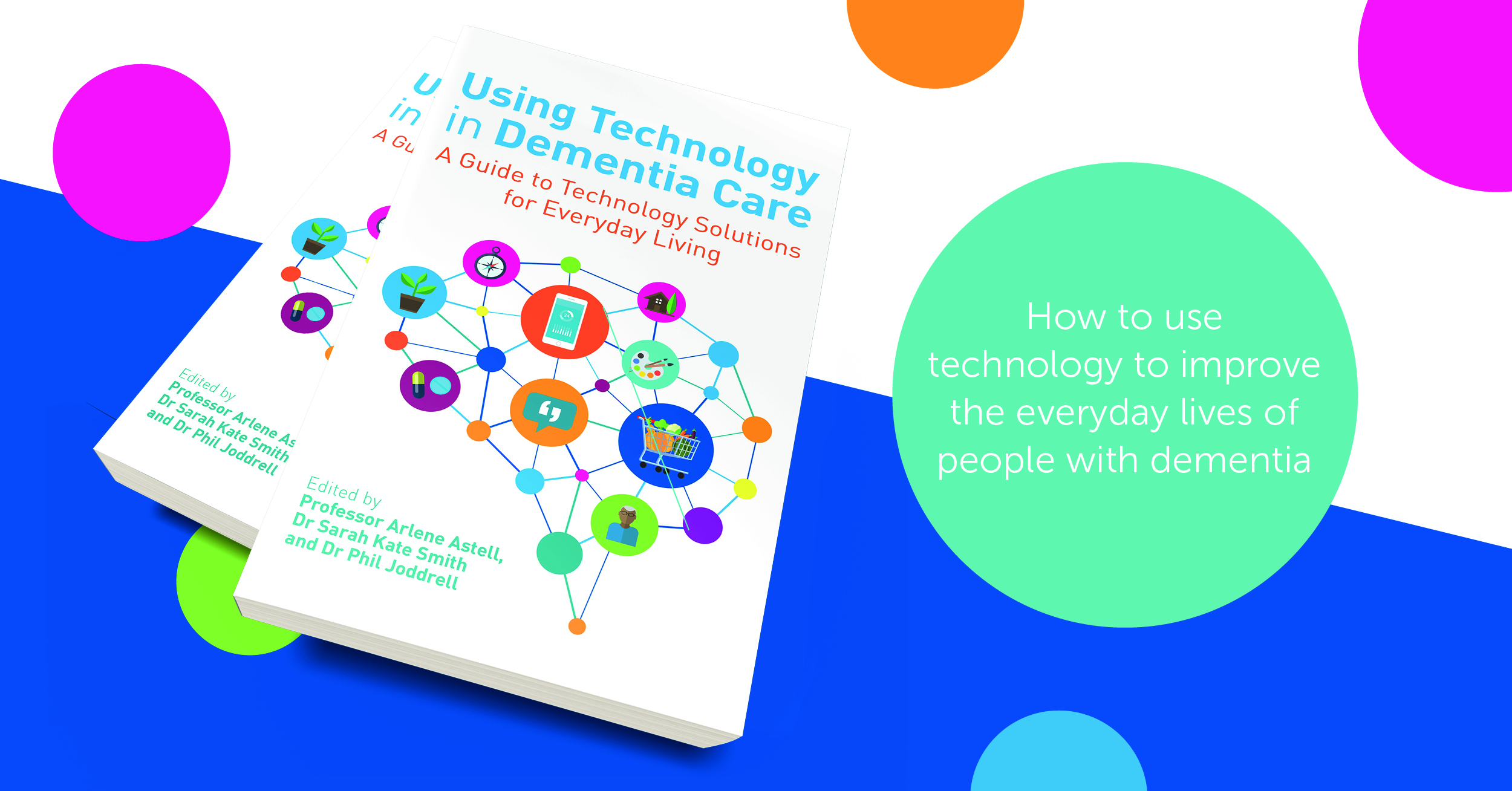 Using Technology in Dementia Care: A Guide to Technology Solutions for Everyday Living, Edited by Professor Arlene Astell, Dr Sarah Kate Smith and Dr Phil Joddrell is an accessible guide that combines the latest research with practical advice on how to use currently available technology in dementia care.
Using Technology in Dementia Care: A Guide to Technology Solutions for Everyday Living, Edited by Professor Arlene Astell, Dr Sarah Kate Smith and Dr Phil Joddrell is an accessible guide that combines the latest research with practical advice on how to use currently available technology in dementia care.
In this blog Professor Arlene Astell explains who should read this book and why.
Ken, who has a diagnosis of Lewy Body dementia, is a big fan of voice-activated software, especially on days when he cannot use a computer keyboard. Tom who is living with Alzheimer’s disease, likes his old landline telephone. Ann, who has young-onset dementia, swears by her voice-recorder which she keeps by the bed to leave herself reminders of what she has planned the next day. Keith, who is also living with Alzheimer’s disease, finds his mobile phone and computer indispensable for his work as a dementia activist. In Using Technology in Dementia Care all four discuss what they love about technology and what they have abandoned as they strive to live well with dementia.
Alongside these wonderful insights from people grappling with dementia in the 21st century, readers can find practical information about using technology at home, outdoors, for daily activities and fun. There is also information for families providing care for someone with dementia which includes specific technologies for making everyday life easier, reassurance and peace of mind, spending time together, keeping in touch, and looking after themselves.
A further case study describes the experience of Hammond Care, a specialist service in Australia as they set about incorporating technology into all aspects of their practice, which is both honest and inspiring.
Aimed at anyone curious about using technology for dementia, this book includes guidance on what technology is available, what other people find useful, and tips on how to get started. With chapters written by experts from around the world, this book provides an accessible introduction for people living with dementia and their family members, as well as providers of health, social care and housing for people living with dementia. Summaries of how technology for dementia has developed and where it is going, also make this book of interest to researchers, developers and companies wishing to enter the field of dementia technology.
Our aim in writing Using Technology in Dementia Care was to draw together knowledge about technology for dementia in response to the many requests and inquiries we receive for guidance. When we are out and about conducting research or delivering workshops using technology for dementia, people are always asking for suggestions on what to buy or recommendations for apps to use. There is also interest in assistive devices made specially for people living with dementia or other conditions such as large button phones and speaking clocks for people with visual impairment. Recognising the lack of knowledge and accessible information we set out to fill these gaps.
Current technologies have huge amounts of functions that can benefit people living with dementia, their families and care providers right now. Mass production, high street labels and increased awareness should help get these into people’s hands. Technology has the potential to transform the experience of living with dementia when used ethically, sensitively and as wanted by the individual. As Ken says: “this gives us the freedom to do what we want, when we want, so we can live an active life without social workers etc, or anyone else telling us what we can and can’t do.”
Using Technology in Dementia Care is available on the JKP website and through all major online retailers.
About the editors
Arlene Astell is Professor of Neurocognitive Disorders and Director of the Berkshire Memory and Cognition Research Centre, University of Reading, UK. She is also Ontario Shores Research Chair in Dementia Wellbeing, University of Toronto, Canada.
Sarah Kate Smith is a Post-Doctoral Research Associate at the Salford Institute for Dementia, University of Salford, UK
Phil Joddrell is Research Associate at the Centre for Assistive Technology and Connected Healthcare (CATCH), University of Sheffield, UK.